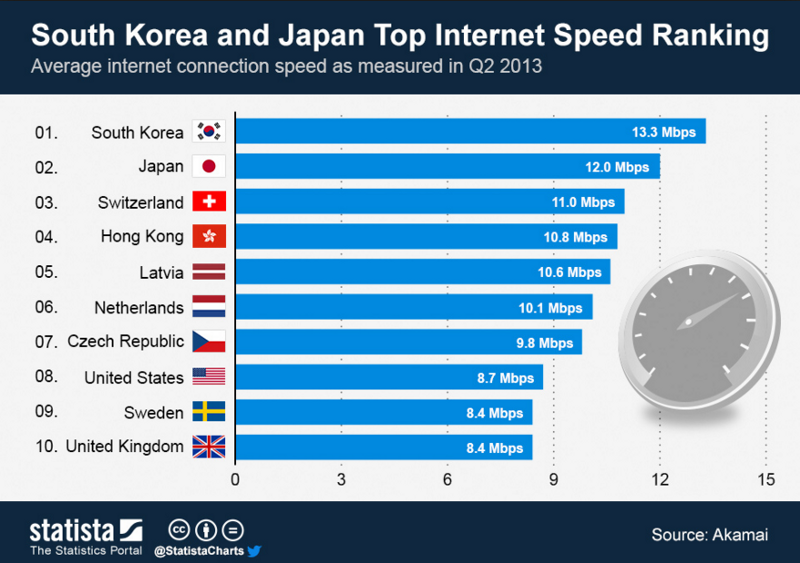by Stephen Mayeux
South Korea Is a Self-Taught Coder’s Paradise

Need more time to devote to coding? South Korea and many other countries in Asia can help you do that.
Recently I published an article recounting all the cool things I have learned since I started teaching myself how to code 9 months ago. The response was very positive, and a lot of aspiring developers reached out to me asking how I did it.
Some extreme external motivational forces have been a big part of my success. Although I have no regrets about being an English teacher for the last 8 years, it’s tough to make ends meet and if I ever want to break free from the shackles of student debt, I absolutely must acquire more lucrative skills.
But it’s not all about the money. Solving problems with code is a lot of fun!
I have also had a tremendous amount of support from my wife. She has been more than reasonable as I lock myself away for hours at a time, and without her doing my share of the household chores, I wouldn’t have been able to learn so quickly.
Note to my wife: I don’t love my computer more than you!
But without a doubt, I must attribute at least some of my success to living in South Korea.
Paradoxically, I am counting down the days until I finish my teaching contract, yet it is this teaching job which has given me a handsome income and tons of free time to pursue coding. Living in South Korea has accelerated my learning, and if you’re in a similar situation as me, you should at least consider the possibility of moving here.
Become an English Teacher => Learn to Code
There are only 3 simple requirements to teach English in South Korea:
- Be a passport holder from an English-speaking country,
- Have a clean criminal record, and
- Have a 4-year degree from a university in an English-speaking country.
If you satisfy these requirements, you can find a teaching job in South Korea relatively easily and be in the country within 2 or 3 months. Having teaching experience and credentials will help you find jobs with better conditions and a higher salary, but there are no hard and fast rules about this.
Most expats in Korea teach in universities, public primary and secondary schools, and private language institutes known as hagwons. The universities and public schools offer the most paid holidays and time off, and landing one of these jobs is becoming more and more competitive. Hagwon teachers teach the most and have fewer days off, but the most they work are 40 hours a week.
The de facto website for finding teaching jobs in Korea is Dave’s ESL Cafe, and you can find out everything you need to know from there. I won’t get into the specifics about the visa application process or what schools to avoid in this article, but leave your questions in the comments below and I promise to answer each one individually.
Why Korea?
There are a lot of reasons why you should let Korea fund your coding education.
First of all, your personal finances will never be a cause for concern in this country, and you will have loads of disposable income to buy Udemy courses and enroll in online bootcamps. How is this possible?
Other than fresh produce at the grocery store, the cost of living is relatively low. Public transportation, household items, restaurants, bars, and entertainment are very affordable, and you won’t have to spend a lot of money to enjoy a good quality of life. Your employer will pay half of your health insurance, and there are no insanely high premiums for visiting a doctor as there are in America. (I’m not trying to start a debate here.)
And the kicker… your employer pays your rent!
So while an English teacher in Korea doesn’t make anything close to what a developer does, you won’t have to spend a lot of money here. And when it’s time to leave, you’ll receive a nice contract-completion bonus from your school. By the time I leave in September, I will walk away with bonuses totaling 4 months’ salary! This will go directly to traveling expenses for my upcoming job interviews this Fall.
There’s also a thriving community of self-taught developers here, many of whom participate in local chapters of Free Code Camp. Not to brag or anything (OK, totally bragging), but Quincy himself has publicly called Free Code Camp Busan and Seoul the “gold standard” when it comes to campsites.
Oh yeah… Korea also has the fastest and most affordable internet service in the world.

Why not Korea?
If you are not tied down to a job or your family back home, then Korea might be a viable option to fund your coding education. That said, it’s not for everybody.
If you have children, I don’t think it’s a good idea to come here. International schools are very costly, and your employer will only provide an apartment suitable for one, maybe two people. You’d be responsible for procuring a bigger place of your own, and paying insane security deposits. Unlike a lot of countries, monthly rent in Korea tends to be lower, but the deposit can range anywhere from US $5,000 to $20,oo0!
Korea is also not a good place for people who don’t like leaving their comfort zone. I like to think that I am an open-minded person who is culturally aware and sensitive, but it’s a struggle living here on some days.
I’m not going to bad-mouth Korean society (I’m trying to convince you to move here, after all!), but in the spirit of full transparency, you need to know that most Koreans are over-worked and stressed-out.
I teach a mix of university students, stay-at-home parents, and business people at a private language institute. By and large, I am more of a therapist than a teacher. Korea’s high-pressure work environments and competitive education systems put a lot of stress on its people, to the extent that I even feel it as an expatriate.
Some people love living in Korea. Some people hate it. I’m somewhere in between right now, but I stay busy and surround myself with positive people who also like to code. That makes my time here worth it.
Questions
I’m going to anticipate some of your questions and answer those right now. If I didn’t address something in the article, please ask me in the comments below.
- Do I have to speak Korean to teach in Korea? Absolutely not, and your school will usually prohibit you from speaking Korean. That said, you should probably learn the Korean alphabet (super easy!) and some survival phrases to make your life easier.
- What are the best places to live in Korea? Seoul is a cool city with a new startup scene, but it gets very cold. Busan is a coastal with beaches and mountains, but it’s not as urbane as Seoul. Daegu has a great expat scene, but it gets really hot in the summers.
- I’m interested in the public school system. What are those programs called? Google EPIK, GEPIK, and SMOE. Great programs if you can get into them.
- I want to be a teacher to fund my coding journey, but I don’t want to go to Korea. There are other options that pay decently and afford you the same quality of life as Korea. I would look into Japan, Vietnam, and Taiwan if you’re interested in Asia.
